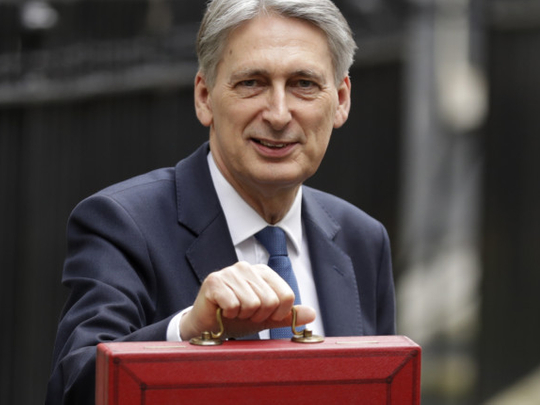
London: Britain has raised its forecasts for economic growth this year but is more downbeat about the following three years, finance minister Philip Hammond announced in the first full budget since the referendum decision to leave the European Union.
Britain’s economy will grow by 2.0 per cent this year, sharply up on a previous forecast of 1.4 per cent, Hammond said in his speech to parliament.
Delivering his budget statement just weeks before Prime Minister Theresa May is expected to kick off the process of leaving the EU, Hammond said Britain’s economy had “continued to confound the commentators” with its growth in 2016.
“As we prepare for our future outside the EU we cannot rest on our past achievements,” Hammond told parliament.
“We must focus relentlessly on keeping Britain at the cutting edge of the global economy. The deficit is down, but debt is still too high. Employment is up, but productivity remains stubbornly low.”
The growth outlook for this year remained lower than a forecast of 2.2 per cent made a year ago, before the unexpected Brexit vote which is expected to weigh on the economy in the years ahead.
Furthermore, the forecasts for growth 2018, 2019 and 2020 were lowered from November’s outlook.
“As we start our negotiations to exit the European Union, this Budget takes forward our plan to prepare Britain for a brighter future,” Hammond told parliament. “It provides a strong and stable platform for those negotiations.”
Britain’s public finances are still expected to be in the red by the 2021/22 financial year — a slower pace of deficit reduction than Hammond’s predecessor George Osborne planned a year ago, when he hoped to return the public finances to surplus by 2019/20.












